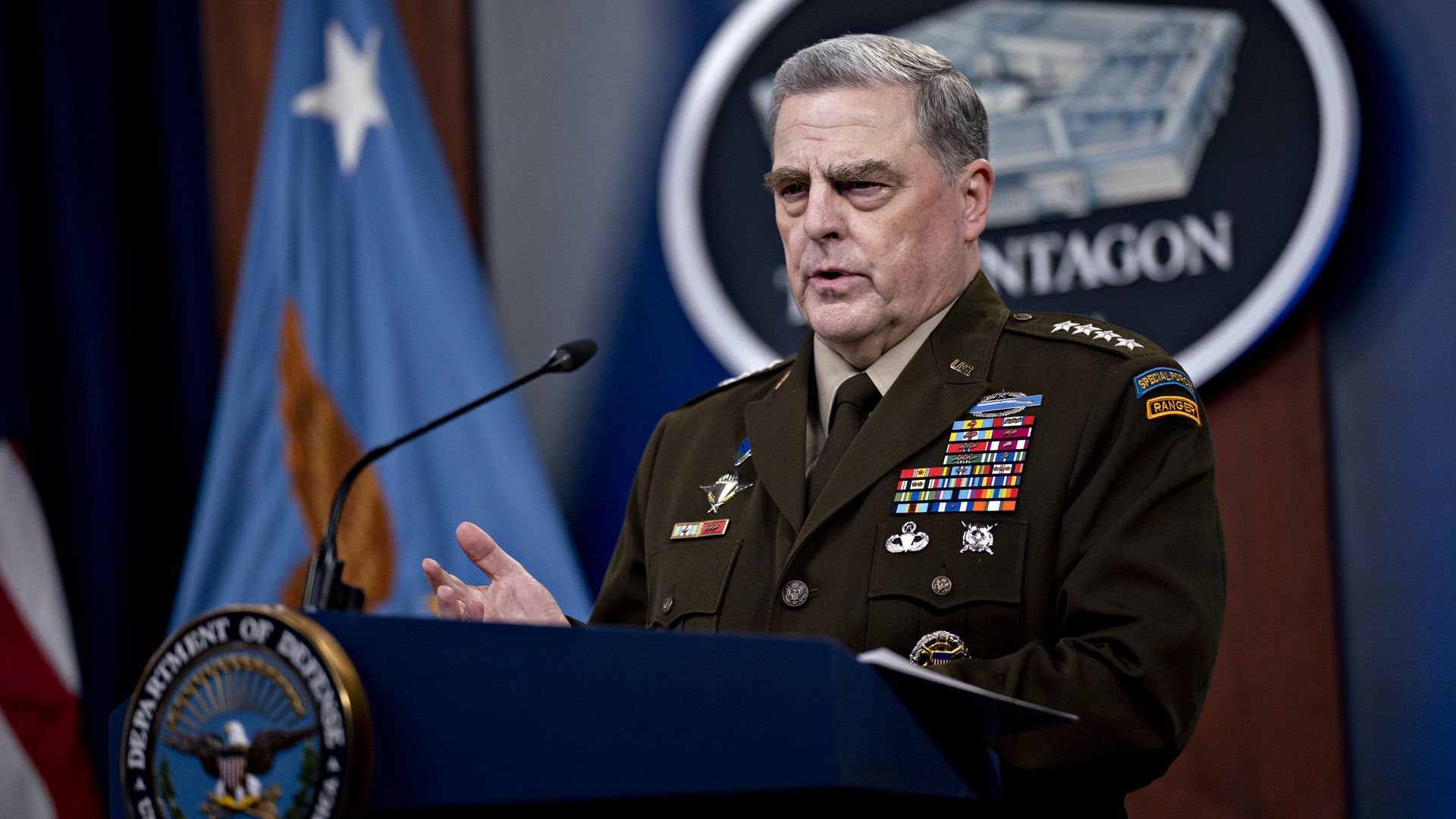Joint Chiefs chair says civil war in Afghanistan "likely"
Add Axios as your preferred source to
see more of our stories on Google.

Gen Mark Milley, chair of the Joint Chiefs of Staff, speaking at a news conference at the Pentagon in Arlington, Virginia, on Sept. 1. Photo: Andrew Harrer/Bloomberg via Getty Images
Civil war will "likely" erupt in Afghanistan and this could lead to al-Qaeda's resurgence, U.S. Gen. Mark Milley, chair of the Joint Chiefs of Staff, told Fox News on Saturday.
Driving the news: He said it's too early to say whether the U.S. was safer now American troops have left Afghanistan, but it's "very likely" there'd be a renewal of terrorism in the region "within 12, 24, 36 months, and we're going to monitor that."
- "My military estimate is ... that the conditions are likely to develop [into] a civil war," Milley said in the interview with Fox News' Jennifer Griffin from Germany's Ramstein Air Base.
- "I don't know if the Taliban is going to be able to consolidate power and establish governance," he continued.
- "But I think there's at least a very good probability of a broader civil war and that will then in turn lead to conditions that could, in fact, lead to a reconstitution of Al-Qaeda or a growth of ISIS or other myriad terrorist groups."
Context: President Biden blamed ISIS-K for a suicide bombing that killed 60 Afghans and 13 American troops at Kabul's international airport just before the complete U.S. troop withdrawal from the country last month.
- U.S. Gen. Kenneth McKenzie warned after the blast that such attacks by the ISIS affiliate in Afghanistan would likely continue.
- American forces helped oust the Taliban from Afghanistan following the Sept. 11, 2001, terrorist attacks on the U.S. due to their links to al-Qaeda and Osama bin Laden. But the BBC notes that the Taliban is neither a centralized nor unified force.
- Al-Qaeda's power within the group remains unclear, but the Taliban released many of Al-Qaeda's senior operatives when it captured Bagram Air Base last month.
Meanwhile, the Taliban is fighting resistant forces in the Panjshir Valley — the last holdout in Afghanistan against the group.
Of note: Milley also spoke to Griffin about security measures American officials were taking to process some 17,000 Afghan evacuees headed for the U.S. — such as registering names, conducting biometrics checks and searching 20 years of databases.
- "They've had ... I think they said a couple of hundred or something like that of popped red," Milley said.
- "Once the individual comes out as red, something is up; then they go into an individual room and start interviewing" with officials from the FBI and other agencies to look into the issues, Milley noted.
"In many of the cases, they end up getting cleared and others we have to take further measures. But I'm very comfortable that ... these folks are being properly cleared through the FBI."
Go deeper: Joint Chiefs chair moves up terrorist threat in Afghanistan
